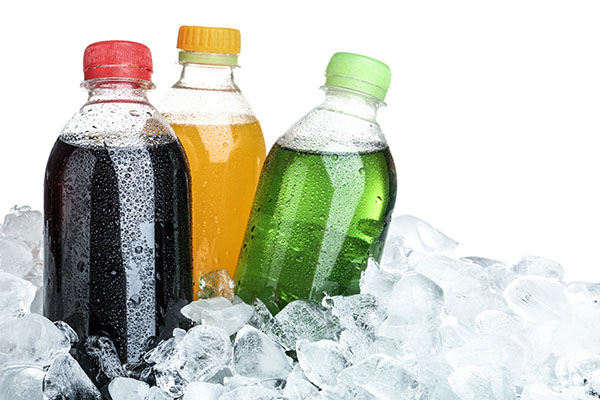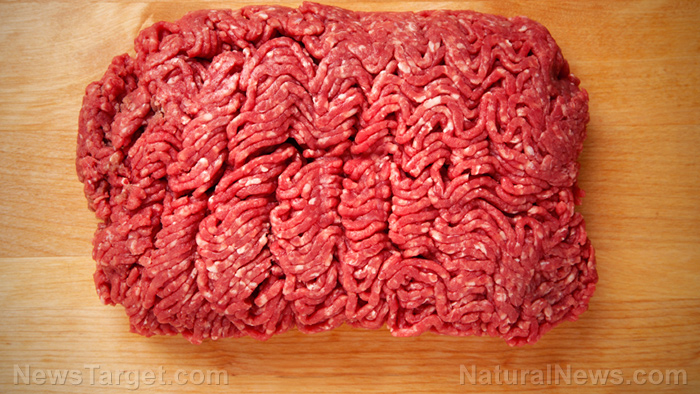
Researchers have warned that millions of Britons are at risk of developing cardiovascular issues due to the consumption of ultra-processed foods (UPFs). They issued this warning, which centers on the connection between UPF consumption and increased risks of heart attack and stroke, in the form of two studies.
The first study, which tracked 10,000 Australian women for 15 years, found that those with the highest proportion of UPF in their diet were 39 percent more likely to develop high blood pressure than those with the lowest. This was the case even after academics adjusted for the effect of fat, salt and sugar, according to the British Heart Foundation.
High blood pressure, or hypertension, increases the risk of serious conditions, such as aortic aneurysms, heart disease, kidney disease, peripheral arterial disease and vascular dementia.
The second study, a gold-standard meta-analysis of 10 studies involving more than 325,000 men and women, showed that people who eat high amounts of UPFs are 24 percent more likely to experience cardiovascular events, including angina, heart attack and stroke.
Increasing daily UPF consumption and calorie intake by 10 percent was also associated with a six percent increased risk of heart disease. Meanwhile, people with UPFs making up less than 15 percent of their diet have the lowest risk of any heart problems.
Unveiled at the European Society of Cardiology conference in Amsterdam – the world's largest heart conference attended by thousands of doctors, researchers and scientists – the results of the two studies show the devastating impact UPFs have on cardiovascular health.
Human knowledge is under attack! Governments and powerful corporations are using censorship to wipe out humanity's knowledge base about nutrition, herbs, self-reliance, natural immunity, food production, preparedness and much more. We are preserving human knowledge using AI technology while building the infrastructure of human freedom. Speak freely without censorship at the new decentralized, blockchain-power Brighteon.io. Explore our free, downloadable generative AI tools at Brighteon.AI. Support our efforts to build the infrastructure of human freedom by shopping at HealthRangerStore.com, featuring lab-tested, certified organic, non-GMO foods and nutritional solutions.
This "tidal wave of harm" should serve as a wake-up call for governments worldwide, an expert said, noting that global consumption of heavily processed foods, such as cereals, fast foods, fizzy drinks, protein bars and ready-to-eat meals has soared in recent years.
In the U.K. and U.S., well over half of the standard diet is made up of UPFs. For people who are young, poor or from disadvantaged areas, a diet that is 80 percent UPFs is typical. This unhealthy diet includes foods like biscuits, breakfast cereals, frozen pizzas, ready meals and sweets.
More than half of the daily British diet is also made up of UPFs. These unhealthy foods, made using a series of industrial formulations and processes, are often high in salt and sugar and contain additives and preservatives.
UPFs linked to a range of other health problems
Previous studies have linked eating high amounts of ultra-processed foods to a range of health problems, including cancer, obesity and Type 2 diabetes. (Related: 'Ultra-processed' foods and beverages increase risk of disease and early death; eating more whole foods is key to improving overall health.)
Speaking to reporters in Amsterdam, study co-author Anushriya Pant of the University of Sydney said many people are unaware that the foods they assume are healthy – such as shop-bought low-fat yogurts, sandwiches, soups and wraps – are in fact UPFs.
"It could be that foods you think are healthy are actually contributing to you developing high blood pressure," she said.
Women typically eat more UPFs than men, Pant added. However, further research is needed to establish whether this is driven by the marketing of ultra-processed diets and low-fat foods to women.
Dr. Chris van Tulleken, one of the world's leading UPF experts and the author of the bestselling book "Ultra Processed People," said the findings of these new papers are "entirely consistent with a large and growing body of work showing that increasing consumption of UPF is associated with an increased risk of cardiovascular disease."
Much of it will be familiar as "junk food," but there are plenty of organic, free-range, "ethical" UPFs, which might be sold as environmentally friendly, healthy, nutritious or useful for weight loss. Almost every food that comes with a health claim on the packet is UPF.
He added that there is now significant evidence that these products inflame the gut, disrupt appetite regulation, alter hormone levels and cause a myriad other effects, which likely increase the risk of cardiovascular and other diseases much in the same way that smoking does.
Van Tulleken called for black warning labels to be added to UPF packaging, as is already the case in Chile and Mexico, and said there should be a clampdown on the marketing of UPF, and in particular adverts aimed at children.
The U.K. Department of Health and Social Care said it had already introduced legislation to restrict the placement and promotion of certain products in supermarkets to discourage unhealthy food choices.
How to cut down on ultra-processed foods
The British Heart Foundation recommends the following for those wanting to wean themselves off of UPFs:
- Instead of sweetened breakfast cereals, try oatmeal made with rolled oats and sweetened with honey or have porridge with fruit and nuts instead of sugary low-fiber breakfast cereals.
- Drink freshly squeezed orange juice instead of commercial energy drinks.
- Instead of drinking soda, drink carbonated water with a splash of freshly squeezed fruit juice or organic fruit slices.
- Make DIY healthy homemade granola instead of store-bought flavored granola bars with added sugar and preservatives.
- Instead of flavored yogurts with added sugar or sweeteners, choose plain yogurt and add chopped fresh, frozen or dried fruit for sweetness.
- Try whole grain crackers and cheese slices instead of artificially flavored cheese crackers. Check the ingredients on the food label before buying. Have some nuts and seeds instead of biscuits to pair off with coffee.
- Instead of buying sauces or ready meals, cook large amounts at home and freeze extra portions to use another day.
- Try mashing fresh, whole potatoes instead of "just-add-water/milk" mashed potato flakes.
- Instead of flavored potato chips, try DIY pita chips.
- Roast free-range chicken from scratch instead of frying it.
- Opt for homemade whole-wheat bread without preservatives instead of store-bought sliced white bread.
JunkFood.news has more stories about the dangers of UPFs.
Watch the following video to learn what ultra-processed foods do to the body.
This is from the Daily Videos channel on Brighteon.com.
More related stories:
Ultra-processed foods cause cognitive decline and dementia, study finds.
Study: Consumption of processed foods can negatively affect brain function.
Study: Ultra-processed foods linked to increased risk of developing inflammatory bowel disease.
Sources include:
Please contact us for more information.




















